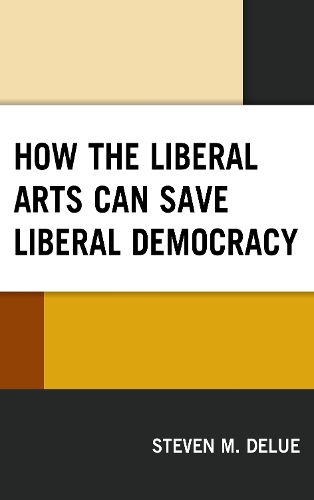
How the Liberal Arts Can Save Liberal Democracy
(Hardback)
Available Formats
Publishing Details
How the Liberal Arts Can Save Liberal Democracy
By (Author) Steven M. DeLue
Bloomsbury Publishing PLC
Lexington Books
6th June 2018
United States
Classifications
Professional and Scholarly
Non Fiction
Philosophy and theory of education
Higher education, tertiary education
378.012
Physical Properties
Hardback
294
Width 157mm, Height 231mm, Spine 27mm
617g
Description
Currently, liberal democracy is threatened by authoritarian movements, not just in the United States but also in societies around the world. The liberal arts arrests authoritarian tendencies by advancing what it shares with the citizens of a liberal democracy: autonomy and freedom. Autonomy is the capacity to make reasoned decisions about a host of political, social, and personal mattersindependent of external parties who seek to control our lives for the sake of their ends and at the cost of our freedom. But autonomy depends on people being able to enter into discussionswhat I call discourses of mutual respectdesigned to test ideas in public against facts and good reasons. This discourse is facilitated by an enlarged culture through which individuals identify what they hold in common and by which individuals work to understand their differences. Now, authoritarian regimes reject autonomy because it empowers citizens to designate the boundaries and content of political authority. Liberal democracies, in contrast, embrace autonomy because it is the basis for the political institutions that provide civic equalityand through itthe freedom of citizens to control their destiny. Yet, ironically, an enlarged culture and the discourse of mutual respect that, together, sustain autonomy are not likely to be produced within a highly partisan political atmosphere of a liberal democracy. Still, a liberal democracy is open to the importation of these elements from the liberal arts. Thus, saving liberal democracy from authoritarianism depends on a robust liberal arts presence in society. What reforms of the liberal arts are needed to make this objective possible Much rides on the answer to this question. For the fact is that if the liberal arts recedes to a whisper, liberal democracy is likely to be defeated by the authoritarians bluster-filled and always nihilist roar.
Reviews
DeLue argues that in these dark times when the the politics of resentment denies a discourse of mutual respect a place in the political sphere, the liberal arts can preserve that discourse and the enlarged culture it promotes. Grounded in careful readings of Plato, Kant, Rawls and Philip Roth, among others, and taking up questions about Enlightenment discourse and identity politics, the effects of social media, and the ways universities lose sight of their core mission, this is a synthetic, ultimately hopeful work that makes a persuasive case about the essential relationship between the liberal arts and liberal democracy. -- Keith Tuma
Author Bio
Steven M. DeLue is professor emeritus of political science at Miami University.
